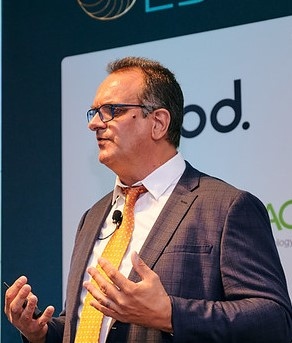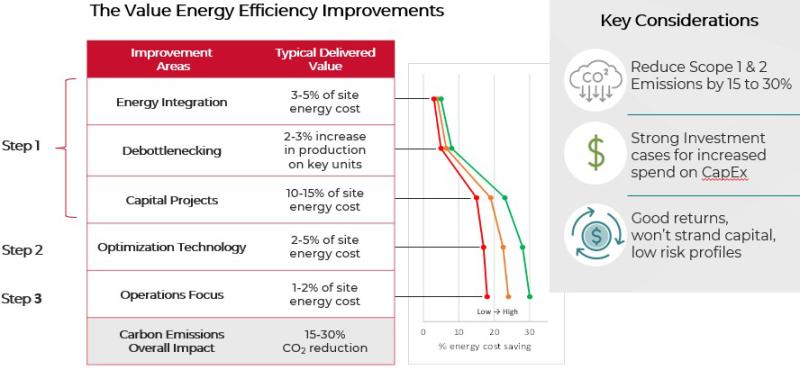Use AI to automatically keep your digital twin models up-to-date to meet your production plans.
Find out more
In May 2023, KBC participated in the 2nd Energy & Sustainability Forum conference held in San Francisco, California. Decarbonization was the focus of this conference. The Inflation Reduction Act (IRA) has given the U.S. an edge in this area. This historic piece of legislation has accelerated efforts to reduce carbon emissions while producing renewable fuels and sustainable aviation fuels. Over the next 10 years, the government will spend $396 billion to decarbonize and create clean energy. This program aims to make energy more secure, increase clean and renewable energy production, advance carbon reduction technologies, speed up the decarbonization of vehicles, and promote other climate policies.
From power generation to transportation to industrial facilities, incentives are in place to reduce carbon emissions and promote clean energy. In addition to being incentivized and subsidized for decarbonization efforts, North America’s oil refining and chemicals industries have an unprecedented opportunity to position themselves for a low-carbon transition and invest in a portfolio of parallel bridges and solutions that include carbon capture, utilization and storage (CCUS), green or blue hydrogen, and advanced biofuels. The biggest takeaway from the bill is that it covers almost every part of the U.S. energy system.
At the conference, KBC subject matter experts - Shige Uehara, Chief Executive Officer; Michiel Spoor, Principal Consultant for Energy; and Duncan Mitchell, Global Decarbonization Business Leader - participated in panel discussions and interactive seminars. They shared their insights on the latest technologies and opportunities available to the oil and gas downstream industry as it moves towards a low-carbon future.

Michiel Spoor delivered his presentation on Energy Efficiency Projects in the Era of Decarbonization. He talked about how important it is for chemical companies or oil refineries to start their roadmap towards net zero with energy efficiency improvements. Energy efficiency always provides good paybacks and only an optimized plant should consider the next steps in decarbonization, which may include renewable energy sources and/or CCUS.
Spoor shared how projects that improve energy efficiency and reduce greenhouse gas emissions will be chosen over those that increase them. Refineries that can prove their energy efficiency efforts will be successful. These investments will also have an increased likelihood of being profitable, as most will be implemented on the older, less efficient equipment that is prevalent within the industry. As long as refineries have good production margins, investments should be made in decarbonization.


During the social event, Shige Uehara welcomed attendees. He reiterated how refineries and chemical companies can make a difference in future energy consumption. Saving energy usage is a necessary part of the industrial energy transition, but it is not sufficient on its own.
“To succeed,” he added, “We must form decarbonization partnership programs. It’s not necessary to follow today’s competitive situation or the value chain you have now. Today’s competitor might be a partner in the future, and you will see a totally different value chain if you consider CO2 reduction in your business. KBC can support you to form such partnerships because we can be an independent broker.”
As a participant in the panel discussion the following day, Uehara stressed the need for refiners to adopt an agile approach to decarbonization. Although they need to make profits to operate, refineries and chemical companies need to work together to foster sustainability. With a wink to the many presentations at the conference, he said, “Let’s do something rather than just talk about it."
The energy transition is an ongoing process that involves more than technological advancements. To navigate this transition, many refineries and chemical companies are becoming adept at evaluating their decarbonization efforts and investing resources where it makes sense. Even some of these companies are taking steps to assess their energy efficiency portfolios. They may choose to either invest in new energy intensive processes or improve their energy efficiency while reducing consumption. The latter course is usually the most cost effective and most sustainable option. When assessing energy efficiency opportunities, the choices refineries and chemical companies make are crucial.